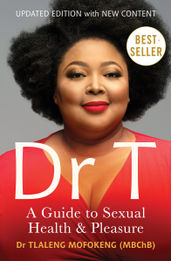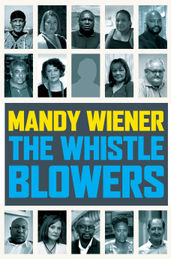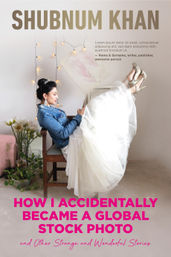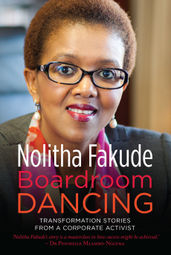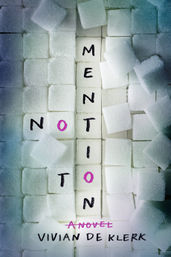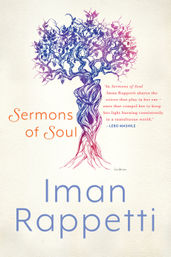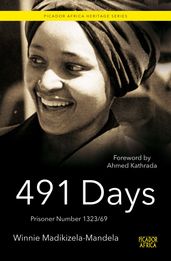Inspirational women writers you need to read
To mark International Women's Day and International Women's History Month, we celebrate some incredible local female writers you need to read.

International Women's Day is a global day celebrating the social, economic, cultural and political achievements of women. The day also marks a call to action for accelerating gender parity. International Women's Day has occurred for well over a century with the first gathering held in 1911. Learn more about the day's timeline. The campaign theme for International Women's Day 2021 is #ChooseToChallenge.
Marked annually on March 8th, International Women's Day (IWD) is one of the most important days of the year to:
- celebrate women's achievements
- raise awareness about women's equality
- lobby for accelerated gender parity and
- fundraise for female-focused charities
To mark #IWD2021, we celebrate some incredible female writers you should be reading.
Dr Tlaleng Mofokeng
The indomitable Dr Tlaleng Mofokeng – affectionately known as Dr T – is passionate about making sexual health and well-being services available to all, regardless of their sexual and gender identities and their economic status. Dr T is the United Nations Special Rapporteur on the right of everyone to the enjoyment of the highest attainable standard of physical and mental health, a medical doctor at DISA Clinic in Johannesburg, with a focus on sexual and reproductive health and rights, as well as a senior lecturer and a broadcaster. Her book, Dr T: A Guide to Sexual Health and Pleasure is filled with the specifics of sexual anatomy and health as well as advice and facts about pleasure and sexual rights, and includes a section on coercive control as well as sex and pleasure during the time of COVID-19.
Dr T
by Tlaleng Mofokeng
‘Dr T’s voice – contemporary and thoroughly African – is vital in a country where too many women are taught to be ashamed of their bodies and their sexual desires, and too many men believe they should shame women.’ – SISONKE MSIMANG
The indomitable Dr Tlaleng Mofokeng – affectionately known as Dr T – is passionate about making sexual health and well-being services available to all, regardless of their sexual and gender identities and their economic status.
This updated edition of her bestselling book is filled with the specifics of sexual anatomy and health as well as advice and facts about pleasure and sexual rights, and includes additional resources along with new sections on coercive control as well as sex and pleasure during the time of COVID.
Dr T, with her typically honest and warm approach, makes the reader feel comfortable reading about topics that are not always discussed freely, providing ALL the information that demystifies sex and sexuality in a way that is entertaining and enlightening.
Mandy Wiener
Mandy Wiener is one of the country’s best known and most credible journalists and authors. She specialises in investigative reporting and legal matters, having extensively covered both the corruption trial of former national police commissioner Jackie Selebi and the Brett Kebble murder trial. She has also earned a reputation for her work exposing South Africa’s ‘Underworld’ reporting extensively on Czech fugitive Radovan Krejcir, Teazers boss Lolly Jackson and other mysterious figures. Wiener has worked as a multi-award-winning reporter since 2004. The Whistleblowers is her fifth book, following on from Ministry of Crime: An Underworld Explored; Behind the Door: The Oscar Pistorius and Reeva Steenkamp Story, with Barry Bateman; My Second Initiation: A Memoir, with Vusi Pikoli, former head of the National Prosecuting Authority; and the groundbreaking Killing Kebble: An Underworld Exposed. Released in 2020, The Whistleblowers shines a light on the plight of whistleblowers advocating for a change in legislation, organisational support and social attitudes in order to embolden more potential whistleblowers to have the courage to speak out.
The Whistleblowers
by Mandy Wiener
Whistleblowers are seldom seen as heroes. Instead, they are often viewed through a negative lens, described as troublemakers, disloyal employees, traitors, snitches and, in South Africa, as impimpis or informers. They risk denigration and scorn, not to mention dismissal from their positions and finding their careers in tatters.
With corruption and fraud endemic in democratic South Africa, whistleblowers have played a pivotal role in bringing wrongdoing to light. They have provided an invaluable service to society through disclosures about cover-ups, malfeasance and wrongdoing. Their courageous acts have resulted in the recovery of millions of rands to the fiscus and to their fellow citizens as well as improved transparency and accountability for office bearers and politicians. Some would argue it was whistleblowing that brought down a president and the corrupt ‘state capture’ regime.
But in most cases, the outcomes for the whistleblowers themselves are harrowing and devastating. Some have been gunned down in orchestrated assassinations, others have been threatened and targeted in sinister dirty-tricks campaigns. Many are hounded out of their jobs, ostracised and victimised. They struggle to find employment and are pushed to the fringes of society. Where there is litigation, this drags on and on through the courts. Mental health and relationships suffer. The psychological burden of choosing to speak up when there has been little reward or compensation is a heavy one to carry.
The Whistleblowers shines a light on their plight, advocating for a change in legislation, organisational support and social attitudes in order to embolden more potential whistleblowers to have the courage to step up.
Their status as whistleblowers is sometimes contentious – this book delves into whether they deserve the status or whether they were, in fact, complicit in the wrongdoing they claimed to expose.
These are the raw and evocative accounts of South Africa’s whistleblowers, told in their own voices and from their own perspectives: from the hallowed corridors of parliament to the political killing fields of KwaZulu-Natal, from the fraud-riddled platinum belt to the impoverished, gang-ridden suburb of Elsies River, from the gantried freeways of Gauteng to the Bosasa blesser’s facebrick campus in Krugersdorp, from the wild east of Mpumalanga to the corporate jungle of Sandton, and from the wide farmlands of the Free State to that compound of corruption in Saxonwold.
Angela Makholwa
A South African author born and raised in the East Rand township of Tembisa. Angela worked as a journalist, reporting mostly on crime in the 1990’s. She is the much-loved author of gripping psychological thrillers. Her novels – Red Ink, The 30th Candle, Black Widow Society, and the internationally acclaimed The Blessed Girl – are filled with entertaining escapades and sexual misadventures of modern women. Angela has gained critical and popular acclaim for her contribution to African literature and has been nominated for several awards. The crime and women’s fiction writer has been invited to speak at a number of local and international literary events and is committed to the advancement of literature on the African continent. Her recent novel Critical But, Stable was released in 2020 and explores the complicated lives of high-flying married couples and how they navigate their relationships, success and affluent lifestyles.
Critical But, Stable
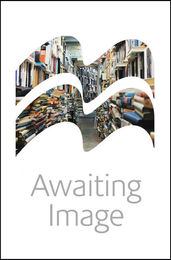
Shubnum Khan
Shubnum is a South African author and artist. Her first novel, Onion Tears, was shortlisted for the Penguin Prize for African Writing and the University of Johannesburg Debut Prize for Writing in English. She holds a Master’s degree in English and has been selected for a number of literary fellowships, including the Octavia Butler Fellow at Jack Jones Literary Arts and as a Mellon Fellow at Stellenbosch University. When she's not travelling, Shubnum lives in Durban writing and drawing for a living. How I Accidentally Became a Global Stock Photo and Other Strange and Wonderful Stories is part memoir, part travelogue and part love letter. She takes the reader on a journey around the world. Whether it is teaching children in a remote village in the Himalayas, attending a writers’ residency where the movie The Blair Witch Project was shot, getting pulled out of the ocean in Turkey or becoming a bride on a rooftop in Shanghai, Shubnum is quirky, moving and vulnerable in what she shares. Releasing in April, the book is about holding onto hope and a reminder that once ‘you step off the edge, anything can happen’.
How I Accidentally Became a Global Stock Photo and Other Strange and Wonderful Stories
by Shubnum Khan
How I Accidentally Became a Global Stock Photo and Other Strange and Wonderful Stories is part memoir, part travelogue and part love letter. Shubnum Khan takes the reader on a journey around the world. Whether it is teaching children in a remote village in the Himalayas, attending a writers’ residency where the movie The Blair Witch Project was shot, getting pulled out of the ocean in Turkey or becoming a bride on a rooftop in Shanghai, Shubnum is quirky, moving and vulnerable in what she shares.
Shubnum offers an introspective reflection on what it means to be a woman, particularly a single Muslim woman in South Africa, trying to find herself in a modern world. The stories are drawn from her life journey, which has been full of unexpected twists and turns, and are interspersed with reflections on culture and religion as well as musings on family, relationships and love.
The Mindy Project meets Bridget Jones’s Diary with a side of Keeping Up With The Kandasamys, this is a book about holding onto hope and a reminder that once ‘you step off the edge, anything can happen’.
Nolitha Fakude
Born in Cenyu a small village in the Eastern Cape outside Stutterheim, Nolitha Fakude grew up as a shopkeeper’s daughter. She worked her way up from the shopfloor as a Graduate Trainee at Woolworths to become one of South Africa’s most respected and successful black business women. Nolitha is a humble leader who is widely respected as a pioneer who was at the forefront of transformation strategy, both within the companies she worked for and as a leader at the Black Management Forum where she worked with business, government and unions to drive change in South Africa. Nolitha currently serves as Group Director, South Africa for Anglo American. Over a career spanning 29 years, Nolitha spearheaded programmes that ensure the development of women and marginalised communities in the workplace and society. A passionate advocate for diversity and inclusion, she has earned a well-deserved reputation as a corporate activist.
Boardroom Dancing
by Nolitha Fakude
Nolitha Fakude grew up as a shopkeeper’s daughter in the Eastern Cape, studied at the University of FortHare and then entered the workplace in 1990 as a graduate trainee at Woolworths. Subsequently, she has worked in very senior positions at some major blue-chip companies, including Woolworths, Nedbank and Sasol. She was also managing director and then president of the Black Management Forum (BMF).
Over a career spanning 29 years, Nolitha spearheaded programmes that ensure the development of women and marginalised communities in the workplace and society. A passionate advocate for diversity and inclusion, she has earned a well-deserved reputation as a corporate activist.
Nolitha is held in high regard within business circles and serves on numerous boards including the JSE Limited, Anglo American plc and Afrox Limited. Although Boardroom Dancing is her personal journey, it is also a lesson for South Africans committed to the transformation of boardrooms and the economy, and for women looking for role models as they climb corporate ladders and become thought-leaders
Professor Vivian de Klerk
Vivian de Klerk is Professor Emeritus of Linguistics at Rhodes University, where she devoted 30 years to teaching and research before becoming dean of students in 2008. She received the vice chancellor’s Senior Distinguished Research Medal and, in 2019, was the recipient of the Kraak Writing Grant. Her first novel, Not to Mention is part diary, part memoir, part love-hate letter to the mother who fuelled her daughter’s addiction as steadily as the world ostracised her. The destructive power of shame and society’s harsh judgement of people who are ‘different’ is matched by the immense courage of a young woman who is determined to be heard.
Not to Mention
by Vivian de Klerk
As her 21st birthday approaches, Katy Ferreira has not left her bedroom for close on two years. In fact, she has not left her bed – at 360 kilogrammes, she simply can’t.
Characterised by an indomitable spirit, Katy tries to make the best of a bad situation. She does the crossword in the Herald newspaper her mother brings home, consumes the food she craves – biscuits, pies, doughnuts, litres of fizzy drinks – and waits in hope for insulin and a solution to her plight. To pass the time she begins to compile her own crossword in one of the Croxley notebooks that have been unused since she dropped out of school. Within each cryptic clue is a message, an attempt to explain how it feels to be ‘the fat girl’, how taking comfort in sweet things as a grieving and lonely child escalated into a deadly relationship with food and a psychological and physical disease.
The process triggers splintered memories of dark family secrets and hints of culpability. As Katy finds her voice – quirky, macabre, devastatingly astute and viciously funny at times – the notebooks fill up.
Not to Mention is part diary, part memoir, part love-hate letter to the mother who fuelled her daughter’s addiction as steadily as the world ostracised her. The destructive power of shame and society’s harsh judgement of people who are ‘different’ is matched by the immense courage of a young woman who is determined to be heard.
Sue Nyathi
Sue was born and raised in Bulawayo and lives in Johannesburg with her young son. She relocated to Johannesburg in 2008 which is the same time when the characters in her second bestselling novel, The GoldDiggers embarked on the journey to South Africa. Her move here precipitated in Sue pursuing the idea to get published more vigorously because there was a more vibrant literary and publishing industry in South Africa. Her debut novel, The Polygamist was published in 2012 marking the beginning of her journey as a published writer. Her latest offering, A Family Affair is a big dramatic novel centred around a family, the Mafus, and following the lives of their three daughters, Xoliswa, Yandisa and Zandile.
A Family Affair
by Sue Nyathi
Family is complicated …
Meet the Mafus, a close-knit, traditional family with three daughters. As leaders of their church, The Kingdom of God, Pastor Abraham and his wife Phumla are guiding the community of Bulawayo in faith, while trying to keep the different branches of their family intact.
Independent and feisty Xoliswa returns home, after a hiatus abroad, hoping for a fresh start and a chance to steer the family business; rebellious Yandisa has met the love of her life and is finally getting her act together; while dutiful newlywed Zandile is slowly becoming disillusioned with her happily ever after.
The Mafus always present a united front, but as their personal lives unravel, devastating secrets are revealed that threaten to tear the family apart. For how long will they be able to hide behind the façade of a picture-perfect family?
Iman Rappetti
Iman tries to see the stories that lie untold within people – beyond their faces, behind their eyes, inside their experiences – but are necessary for individual and collective catharsis. She is struck by the need for warmth, for love, for understanding, for conversation in our society and has sought, in her work, to help people find those things. She left the safety of her TV and radio shows to focus on ways to use her experience and network to help dismantle misunderstanding and promote cooperation. Iman is an award-winning broadcaster, mother, leader, lover, and the founder of strategic communications firm RappettiCom. She is committed to her personal cause of living more consciously and intentionally. Her second book, Sermons of Soul brings you the best-loved opening segments from Iman Rappetti’s award-winning radio show, POWER Talk. With each daily sermon, Iman sought to reach out to her listeners and give them something special before the day’s tough subjects unfolded on the programme. She wanted to create a moment for them to feel appreciated, thought of, challenged or cared for.
Sermons of Soul
by Iman Rappetti
Sermons of Soul brings you the best-loved opening segments from Iman Rappetti’s award-winning radio show, POWER Talk. With each daily sermon, Iman sought to reach out to her listeners and give them something special before the day’s tough subjects unfolded on the programme. She wanted to create a moment for them to feel appreciated, thought of, challenged or cared for.
Some days the sermon was a motivational letter, encouraging listeners to stay strong and confident, to have hope for themselves and the country. On other days it was different – a call to action, a sociopolitical critique, a powerfully moving assessment of how we were doing as a society.
These few minutes became one of the most-listened-to segments in radio, so popular that people frequently called in to comment on the impact of the messages or stopped Iman in the street to talk about them. More than once, the sermons have been called life changing.
Reading Iman’s labour of love will remind you of important issues at the same time as it will encourage and inspire you.
The late Mam' Winnie Madikizela-Mandela's 491 Days
491 Days: Prisoner number 1323/69 shares with the world Mam' Winnie Mandela’s moving and compelling journal as well as some of the letters written between affected parties at the time. Readers gain insight into the brutality she experienced, her depths of despair as well as her resilience and defiance under extreme pressure. This book was co-edited by Swati Dlamini and Sahm Venter with the support of the Nelson Mandela Foundation.
491 Days
by Winnie Madikizela-Mandela
On a freezing winter’s night, a few hours before dawn on 12 May 1969, security police stormed the Soweto home of Winnie Mandela and detained her in the presence of her two young daughters, then aged eight and ten.
Rounded up in a group of other anti-apartheid activists under Section 6 of the Terrorism Act, designed for the security police to hold and interrogate people for as long as they wanted, she was taken away. This was the start for Winnie Mandela of a 491-day period of detention and two trials.
Forty-one years after her release on 14 September 1970, Greta Soggot, the widow of David Soggot, one of Winnie Mandela’s advocates during the 1969/1970 trials, handed her a stack of papers that included a journal and notes that she had written in detention.
491 Days: Prisoner number 1323/69 shares with the world Winnie Mandela’s moving and compelling journal as well as some of the letters written between affected parties at the time. Readers gain insight into the brutality she experienced, her depths of despair as well as her resilience and defiance under extreme pressure.
This book was co-edited by Swati Dlamini and Sahm Venter with the support of the Nelson Mandela Foundation.
